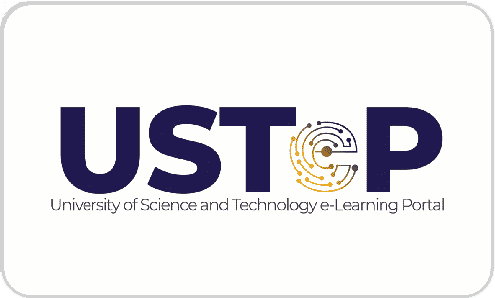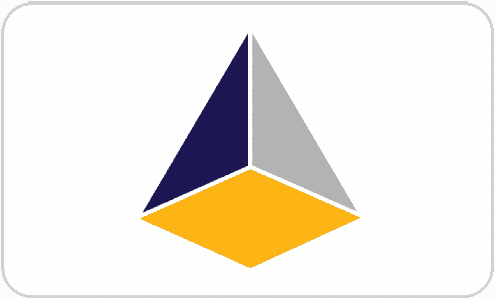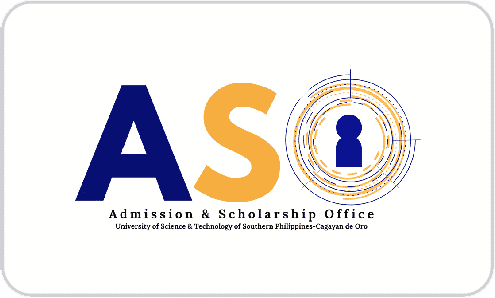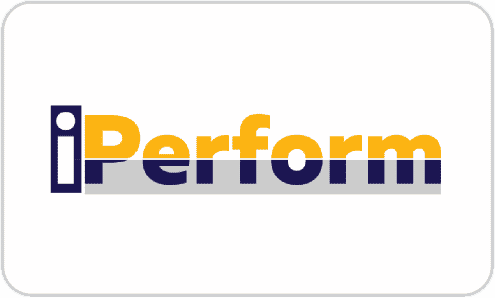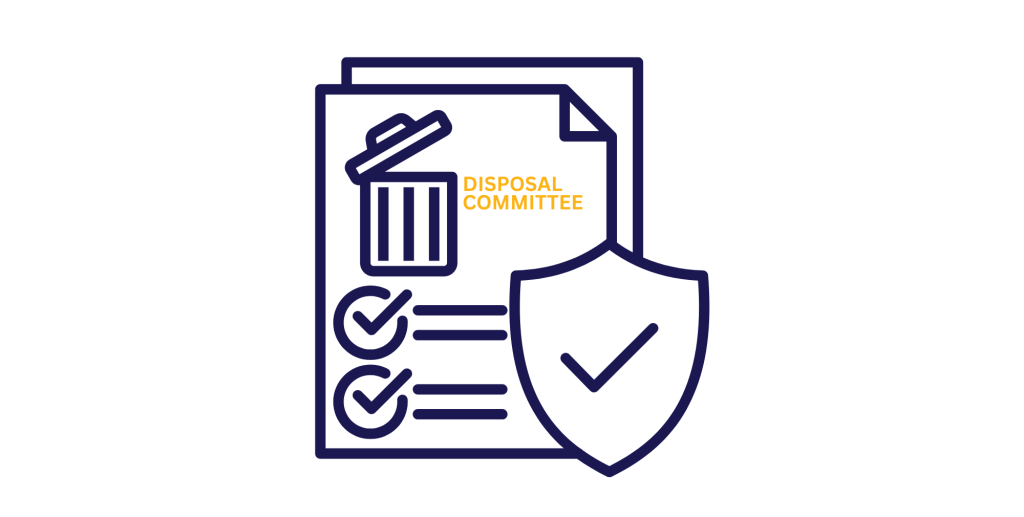MODALITY OF CLASSES
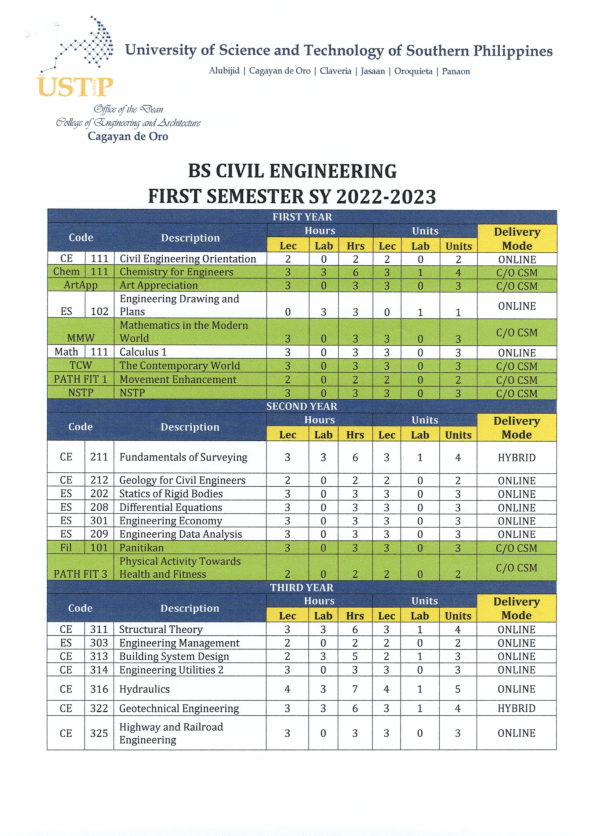
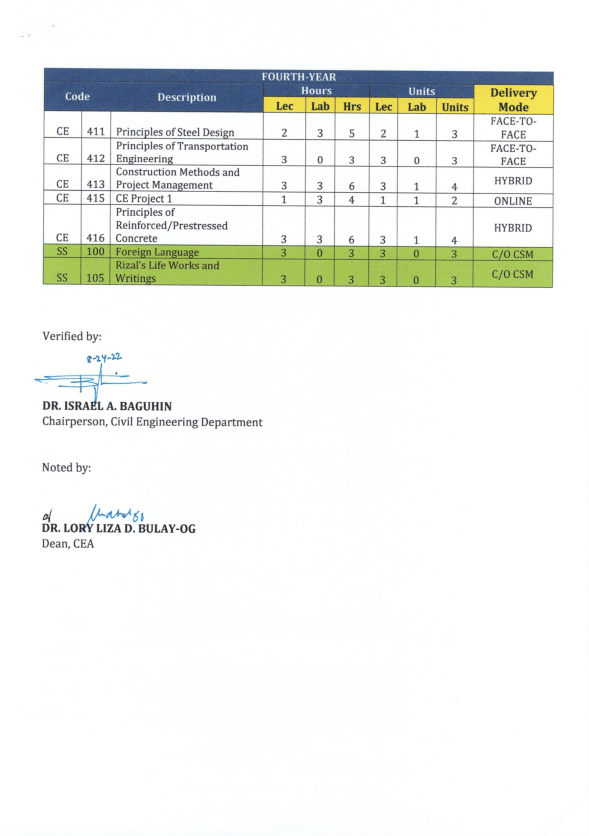

ABOUT THE PROGRAM
The said BSCE program will equip the student with subjects’ relevant to the Civil Engineering field. These subjects are aligned with CHED minimum requirements pertaining to fields of expertise such as Structural, Geotechnical, Water Supply/Resources, and Project Management Engineering. Also, software/s is/are used in simulating the data in comparison with the manual calculations.
PROGRAM EDUCATIONAL OUTCOMES
1. The Graduates are globally competitive civil engineering practitioners.
2. The Graduates are known to perform well with other allied professions providing significant services to the society.
3. The Graduates are doing engineering research, innovation and technopreneurship essential for economic development.
PROGRAM OUTCOMES
a.) Apply knowledge of mathematics, sciences, engineering fundamentals and engineering specialization to the solution of complex civil engineering problems.
b.) Identify, research literature, analyze complex civil engineering problems, and formulate solutions using principles of mathematics and sciences with special focus on water resources engineering and structural engineering.
c.) Design and develop system, component, or process to meet desired needs within realistic constraints such as economic, environmental, social, political, ethical, health and safety, manufacturability and sustainability in accordance with standards.
d.) Conduct investigations of complex problem using research-based knowledge in designing and conducting experiments, as well as to analyze and interpret data in the field of civil engineering with special focus on Water Resources Engineering and Structural Engineering.
e.) Create, select and apply appropriate and current techniques, resources, and modern engineering and IT tools, including prediction and modelling, to complex civil engineering problems, with an understanding of the limitations and needs of the industry and the society.
f.) Discuss contemporary issues involving societal, health, safety, legal and cultural issues and apply civil engineering practices and consequent responsibilities and solutions to complex civil engineering problems.
g.) Assess and evaluate the impact of civil engineering problems and solutions in wide range of societal issues, such as economic, environmental, legal, social, that shape decision making and demonstrate knowledge of and need for sustainable development.
h.) Apply ethical principles and exemplify utmost professionalism in civil engineering.
i.) Communicate effectively in civil engineering activities with the engineering community and with society in general, such as being able to comprehend and write reports, design documentation, make presentations, and give and receive clear instructions.
j.) Work and function effectively as an individual and as member or a leader in multi-disciplinary and multi-cultural teams recognizing the different roles within a team to accomplish a common goal.
k.) Update oneself on the latest technological advancements in civil engineering, and engage in independent and life-long learning.
l.) Demonstrate knowledge and understanding on project management principles, economic decision-making and technopreneurial skills in a trans-disciplinary environment.
m.) Participate in the generation of new knowledge and advancement of existing knowledge in research and development projects, and in technopreneurial activities in the areas of civil engineering especially in Water Resources Engineering and Structural Engineering aligned to regional and national development agenda or goals.
n.) Promote and Preserve the Filipino Culture and Heritage.
CAREER OPPORTUNITIES
- Structural, Geotechnical, Water Supply/Resources,
- Project Management Engineer in the industry.


